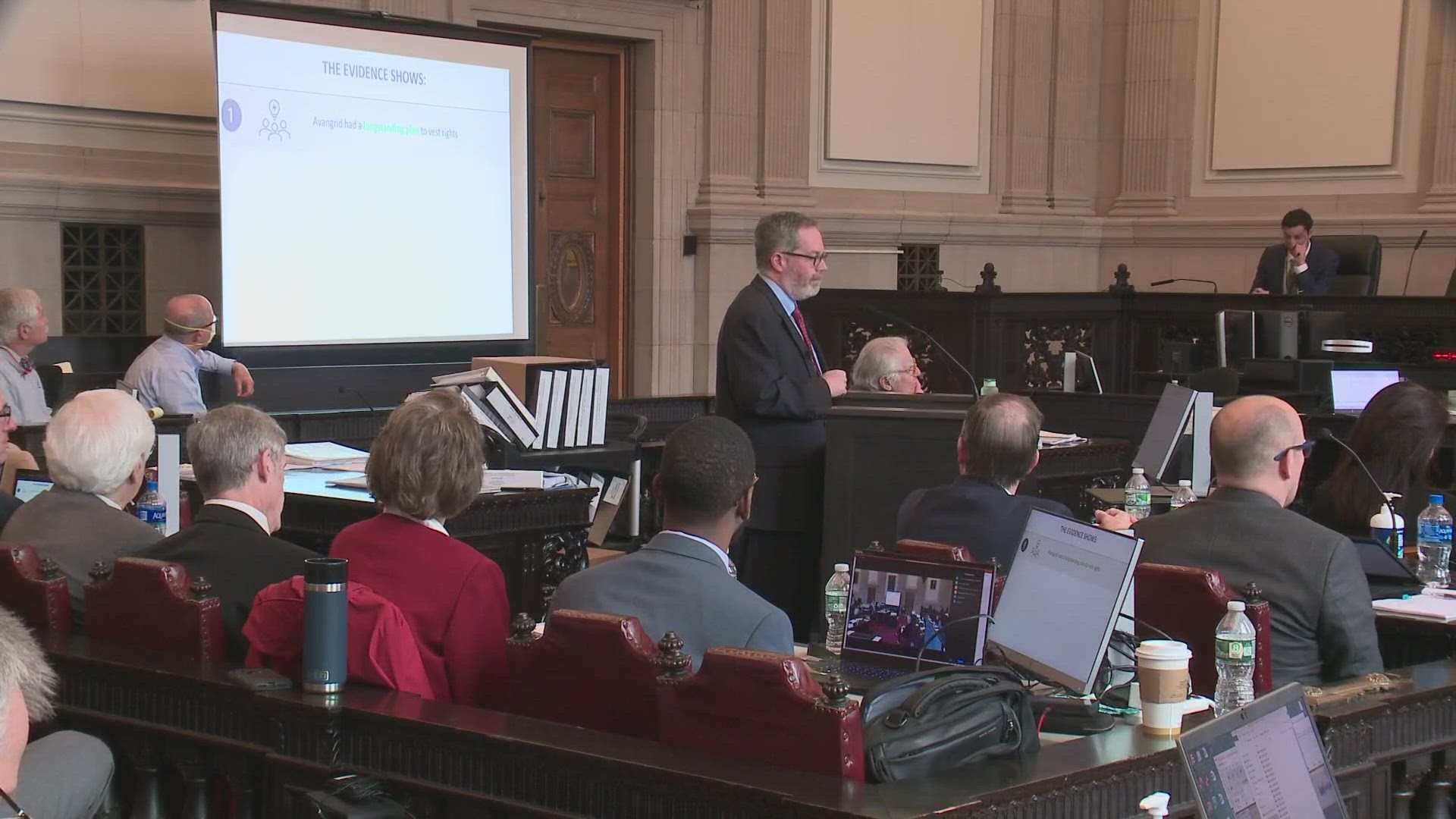PORTLAND, Maine — A trial to determine the likely fate of the controversial transmission line through northern Maine known as the New England Clean Energy Connect (NECEC) is nearing its conclusion.
On Wednesday, jurors heard more than three hours of closing arguments from attorneys before beginning deliberations for approximately 1.5 hours. Jurors are expected to return Thursday to continue. In this civil trial, only six of the nine jurors will need to be in agreement to reach a verdict.
Jurors will be looking to answer the question of whether NECEC project developers conducted significant visible construction prior to Nov. 2, 2021, and whether was it done in good faith, and not to establish a vested right.
After six days of testimony, on Wednesday, attorneys from each side were given 1.5 hours of closing statements.
During closing statements, John Aromando, representing NECEC and it's parent company Avangrid in the lawsuit, emphasized the challenges posed to the project due to legal challenges from opponents.
"Everything was supposed to be underway before year-end in January 2020," Aromando said. "Then we look at September 2020, and look at how all these deadlines have moved. Everything has been delayed, nothing is on time. Much less expedited."
"This baseline schedule is nothing more than the bid. It's a wish list of what they hope to do," attorney James Kilbreth argued, representing the plaintiffs in the case. "The bid schedule was never realistic."
Kilbreth and Maine Assistant Attorney General John Bolton claim that NECEC and project developers expedited work on the project in an effort to create a vested rights claim, and protect the project from being stopped following the referendum.
"I think you put this evidence together and what you see is a calculated plan to expedite the scheduled start of pole setting for the specific purpose of generating a vested rights claim. Specifically, a vested claim to defeat the 2nd citizens' initiative. And they can't claim vested rights if that's what they did," Bolton said.
Bolton and Kilbreth argue that changes to the schedule were made to get poles in the ground on a section of the project from May to February of 2021.
"The dates, the milestones in the schedule have all been delayed, they've all moved backwards. But it's the same schedule. So the schedule was not created for any purpose after the 2nd initiative became apparent much less for the purpose of vesting rights," Aromando said.

